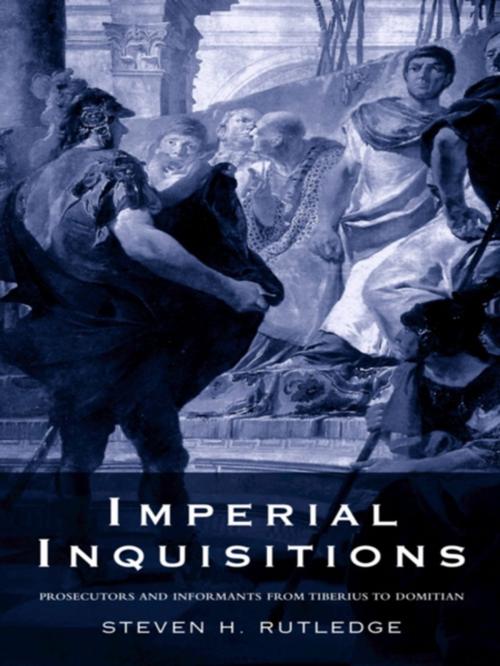Imperial Inquisitions
Prosecutors and Informants from Tiberius to Domitian
Nonfiction, Reference & Language, Language Arts, Communication, History, Ancient History| Author: | Steven H. Rutledge | ISBN: | 9781134560592 |
| Publisher: | Taylor and Francis | Publication: | January 4, 2002 |
| Imprint: | Routledge | Language: | English |
| Author: | Steven H. Rutledge |
| ISBN: | 9781134560592 |
| Publisher: | Taylor and Francis |
| Publication: | January 4, 2002 |
| Imprint: | Routledge |
| Language: | English |
Delatores (political informants) and accusatores (malicious prosecutors) were a major part of life in imperial Rome. Contemporary sources depict them as cruel and heartless mercenaries, who bore the main responsibility for institutionalising and enforcing the 'tyranny' of the infamous rulers of the early empire, such as Nero, Caligula and Domitian. Stephen Rutledge's study examines the evidence to ask if this is a fair portrayal.
Beginning with a detailed examination of the social and political status of known informants and prosecutors, he goes on to investigate their activities - as well as the rewards they could expect. The main areas covered are:
* checking government corruption and enforcing certain classes of legislation
* blocking opposition and resistance to the emperor in the Senate
* acting as a partisan player in factional strife in the imperial family
* protecting the emperor against conspiracy.
The book includes a comprehensive guide to every known political informant under the early empire, with their name, all the relevant primary and secondary sources, and an individual biography.
Delatores (political informants) and accusatores (malicious prosecutors) were a major part of life in imperial Rome. Contemporary sources depict them as cruel and heartless mercenaries, who bore the main responsibility for institutionalising and enforcing the 'tyranny' of the infamous rulers of the early empire, such as Nero, Caligula and Domitian. Stephen Rutledge's study examines the evidence to ask if this is a fair portrayal.
Beginning with a detailed examination of the social and political status of known informants and prosecutors, he goes on to investigate their activities - as well as the rewards they could expect. The main areas covered are:
* checking government corruption and enforcing certain classes of legislation
* blocking opposition and resistance to the emperor in the Senate
* acting as a partisan player in factional strife in the imperial family
* protecting the emperor against conspiracy.
The book includes a comprehensive guide to every known political informant under the early empire, with their name, all the relevant primary and secondary sources, and an individual biography.















